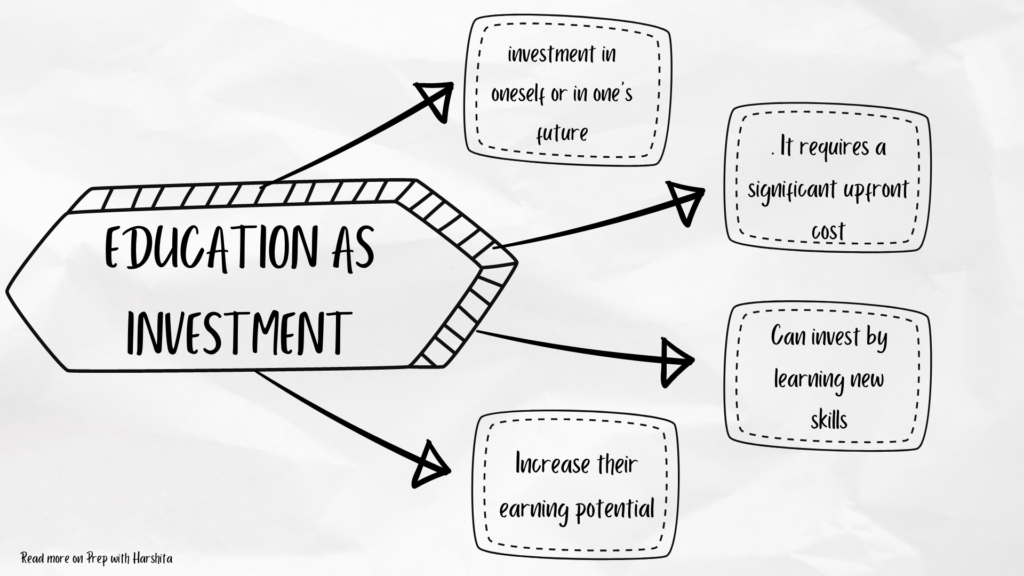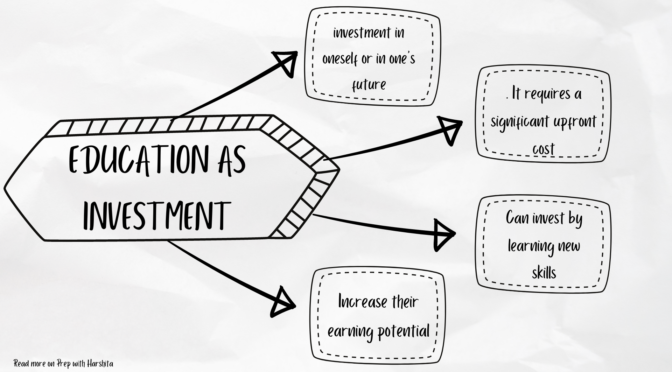Education as an investment can be viewed as an investment in oneself or in one’s future. By acquiring knowledge and skills through education, individuals can increase their earning potential, career opportunities, and overall quality of life.
Investing in education is similar to investing in financial markets. It requires a significant upfront cost, but the benefits can compound over time. A college degree, for example, can lead to higher-paying jobs and a greater chance of career advancement.
Furthermore, education is not limited to formal schooling. Individuals can invest in their education by learning new skills, taking online courses, attending seminars and workshops, and reading books. Continuously learning and improving one’s skills can make an individual more marketable in the job market and increase their earning potential.
Also read: Types of Educational Policy
The following are some key features of education as an investment:
- Upfront costs: Education requires a significant upfront investment of time, effort, and money. This can include tuition fees, textbooks, and other expenses.
- Long-term benefits: Education provides long-term benefits that can last throughout an individual’s lifetime. This includes increased earning potential, better job opportunities, and improved quality of life.
- Risk and return: Like any investment, education involves some degree of risk and return. The risk is that the investment may not lead to the desired outcome, such as a high-paying job. The return is the potential benefit of improved career prospects and increased earning potential.
- Diversification: It can be seen as a way of diversifying one’s investment portfolio. By acquiring new skills and knowledge, individuals can make themselves more marketable in a variety of industries and job markets.
- Continuous learning: Education is not a one-time investment, but rather a continuous process. Individuals must continue to learn and update their skills to remain competitive in the job market and to adapt to changing technological and economic conditions.
Also Visit: Prep with Harshita


